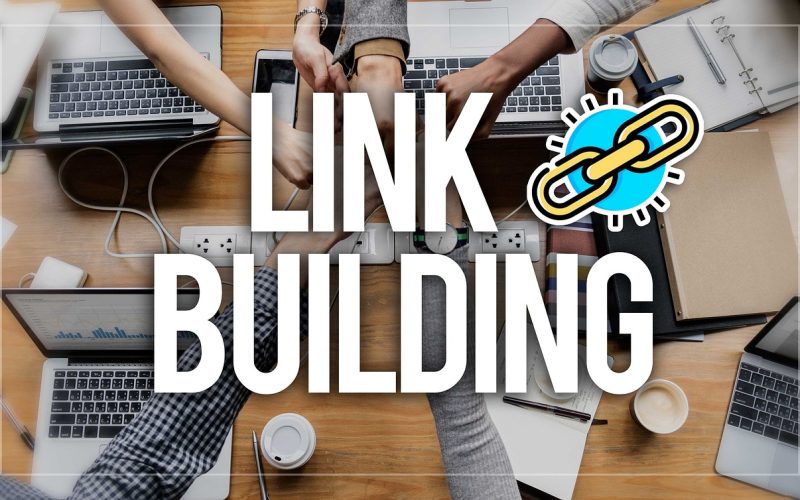Introduction
In today’s online world, every business wants to be seen. Whether you run a small local shop or a global brand, having a strong online presence is no longer optional. This is where digital marketing comes in. And at the heart of digital marketing are two powerful tools—SEO and link building.
But what do these terms really mean? Why are they so important for your website? And how can you use them to grow your business online?
In this article, we’ll break down the basics of SEO and link building in easy-to-understand language. You’ll learn what they are, how they work, and how to use them to get better results from your digital marketing efforts.
What is SEO?
SEO stands for Search Engine Optimization. It is the process of making changes to your website to help it show up higher in search engine results. When someone searches for a product, service, or question on Google, they’re shown a list of results. Websites that rank higher on this list are more likely to get clicks and visitors.
SEO helps your website appear at the top of these search results by improving:
- The words and content on your site
- The structure and design of your site
- How fast your site loads
- Whether your site works well on mobile phones
- How trustworthy and helpful your site is
In short, SEO is all about making your website better for both people and search engines like Google.
Why Is SEO Important?
Think about how often you search for things online. Whether you’re looking for a pizza place, a clothing store, or an answer to a question, you probably click one of the top results. That’s why businesses work hard to be on that first page.
Here’s why SEO is so important:
- More traffic: SEO helps people find your site without paid ads
- Better user experience: A well-optimized site is easier to use
- Increased trust: Sites that rank high are seen as more reliable
- More leads and sales: The more people visit, the more chances you have to sell
Without SEO, your website may stay hidden, even if you offer great products or services.
What Is Link Building?
Now let’s talk about link building. This is one part of SEO that focuses on getting other websites to link to your website. These links are called backlinks.
Search engines like Google see backlinks as a sign of trust. If many trusted websites are linking to yours, Google believes your site is useful and trustworthy too.
There are two main types of links:
- Internal links: These are links within your own site, from one page to another
- External links (backlinks): These are links from other websites that point to your site
While both are important, backlinks play a major role in helping your website rank higher.
Why Link Building Matters
Link building helps search engines understand that your site has valuable information. It’s like getting a recommendation from someone well-known. If a trusted website links to yours, it shows you have something worth sharing.
Here’s what link building can do for your business:
- Improve rankings: More backlinks from good sources can boost your search result position
- Increase web traffic: People click on these links and land on your site
- Grow brand awareness: More websites talking about you means more people get to know your brand
- Build authority: Your site becomes known as a reliable source in your field
But not all links are equal. Links from strong, trusted websites are more powerful than links from low-quality or spammy sites.
How SEO and Link Building Work Together
SEO and link building are closely connected. Think of SEO as the foundation of your website, and link building as the extra boost that gets it noticed.
You can have great content and a fast, well-designed site, but if no one links to you, it may not rank well. On the other hand, if you get lots of links but your site is slow or confusing, visitors will leave quickly.
Here’s how the two work hand in hand:
- SEO makes your site easy to understand and use
- Link building brings more people and trust signals to your site
- Together, they increase your chances of ranking higher and getting more traffic
It’s like having a store with both a great location (SEO) and good reviews (link building). You need both for success.
What About Link Building and SEO ?
In today’s digital landscape, businesses must adopt effective strategies to enhance their online presence. Two crucial components of digital marketing are Search Engine Optimization (SEO) and link building. This article delves into these concepts, their importance, and best practices to help businesses succeed online.
Understanding SEO
Search Engine Optimization (SEO) is the process of optimizing a website to improve its visibility on search engines like Google, Bing, and Yahoo. The ultimate goal is to rank higher in search engine results pages (SERPs), driving organic traffic to the website.
Key Components of SEO
1. On-Page SEO: This involves optimizing individual pages on a website.
Key elements include:
- Keyword Research: Identifying relevant keywords that potential customers use to search for products or services.
- Content Quality: Creating high-quality, informative, and engaging content that addresses the needs of users.
- Meta Tags: Using proper title tags, meta descriptions, and header tags to help search engines understand the content.
2. Off-Page SEO: This focuses on building the website’s authority and reputation through external factors.
Key strategies include:
-
- Link Building: Acquiring backlinks from reputable websites.
- Social Media Marketing: Promoting content through social platforms to increase visibility and traffic.
3. Technical SEO: This involves optimizing the website’s backend to ensure search engines can crawl and index it effectively.
Important aspects include:
- Site Speed: Ensuring fast loading times for a better user experience.
- Mobile Friendliness: Optimizing the site for mobile devices, considering the growing number of mobile users.
- XML Sitemap: Creating a sitemap to help search engines understand the structure of the site.
The Importance of SEO
SEO is vital for several reasons:
- Increased Visibility: Higher rankings in search results lead to more visibility, which translates to more clicks and visits.
- Cost-Effectiveness: Compared to paid advertising, SEO provides a more cost-effective way to generate organic traffic.
- Credibility and Trust: Websites that rank higher are often perceived as more credible and trustworthy by users.
- Better User Experience: SEO practices often enhance the overall user experience, leading to higher engagement and conversion rates.
Link Building: A Crucial Element of SEO
Link building is the practice of acquiring hyperlinks from other websites to your own. These links act as votes of confidence, signaling to search engines that your content is valuable and trustworthy.
1. Why Link Building Matters
- Improved Search Ranking: Quality backlinks are a significant ranking factor for search engines. More backlinks from reputable sites can lead to higher SERP positions.
- Increased Referral Traffic: Links from popular websites can drive targeted traffic to your site, increasing exposure and potential sales.
- Establishment of Authority: Earning backlinks from authoritative sites helps establish your website as a credible source of information.
2. Types of Links
- Natural Links: These are links given naturally by other websites when they find your content valuable.
- Manually Built Links: These are acquired through outreach efforts, such as guest blogging or partnerships.
- Self-Created Links: These can include links from online directories or forums. However, search engines often view these with caution.
Best Practices for Link Building
- Create High-Quality Content: Producing valuable, informative content is the foundation of effective link building. If your content is useful, others are more likely to link to it.
- Guest Blogging: Writing guest posts for reputable blogs in your industry can help you gain backlinks while also reaching new audiences.
- Use Social Media: Promote your content on social platforms to increase visibility and the chances of others linking to it.
- Engage in Influencer Outreach: Building relationships with influencers in your niche can lead to natural backlinks and increased exposure.
- Monitor Backlinks: Use tools like Google Search Console and Ahrefs to track your backlinks and ensure they are from reputable sources.
- Avoid Black-Hat Techniques: Practices like buying links or participating in link farms can lead to penalties from search engines. Focus on ethical, white-hat strategies.
Measuring Success in SEO and Link Building
To determine the effectiveness of your SEO and link-building efforts, you should track various metrics:
- Organic Traffic: Monitor the amount of traffic coming from search engines.
- Keyword Rankings: Keep an eye on how your targeted keywords are ranking over time.
- Backlink Profile: Analyze the number and quality of backlinks you have acquired.
- Conversion Rates: Track how many visitors are completing desired actions, such as making a purchase or signing up for a newsletter.
Conclusion
In the ever-evolving digital marketing landscape, SEO and link building are essential strategies for businesses aiming to improve their online presence. By understanding and implementing effective SEO practices and focusing on quality link-building techniques, businesses can enhance their visibility, credibility, and ultimately drive more traffic and conversions.
As search engine algorithms continue to evolve, staying updated with the latest trends and best practices in SEO and link building will be crucial for long-term success. Embrace these strategies, and you’ll be well on your way to achieving your digital marketing goals. Visit Link Building COM now for more details…











